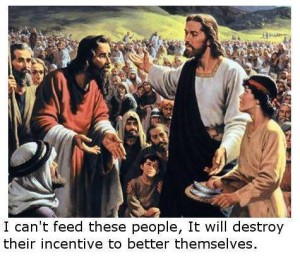Mental Health Cuts Put Lives at Risk
One in four people suffer from mental health problems in their lifetime. The UK government is calling for better mental health provision whilst cutting funding for the NHS. There are deep cuts happening in mental health services across the country. You probably haven’t heard this as it is being swept under the carpet. Finally, there is a flicker of hope as the BBC begins to publicise this dichotomy.
Mental health charities warn cuts ‘put lives at risk’.
The Mental Health Foundation, Rethink Mental Illness, Mind, the NHS Confederation Mental Health Network and the Centre for Mental Health and the Royal College of Psychiatrists have released a letter on Wednesday warning that planned cuts for next year will put lives at risk as the system is already underfunded.
At this point, people with mental illness are being failed, massively. The long term nature of mental illness means that this is a problem that will come home to roost for society in the future. Politics on the other hand is a short term activity and is only concerned with the immediate future and winning the next popularity contest. Politicians like Cameron and Clegg will not be in government when the effects of these cuts become chronic. They will be making after dinner speeches about their time in government whilst the human cost is finally counted. For them it will be “someone else’s problem”. For those who lose their quality of life or a loved one there is a real cost.
In the current climate, there are some people for whom the human cost will always seem irrelevant. This shouldn’t need saying but in recent years there is a need to spell it out: there is a serious economic consideration to creating a system in which thousands of people are left as “unproductive members of society”:
Sean Duggan, chief executive of the Centre for Mental Health, said early intervention programmes were “very good value for money” and the prospect of budget cuts was “very worrying”.
“Early Intervention in Psychosis services are known to be highly effective in helping young people to negotiate their first episode of psychosis”, he said.
“They offer hope of a brighter future by helping young people to stay in education, to get and keep work, and to support their physical health.”
He described the cuts as a “false economy”.
“They save the NHS £9 and the wider economy another £9 for every £1 invested in them.”
Facilitating people back to “productive lives” makes economic sense for the country. Consigning people to a lifetime of mental illness makes no economic sense.
Please, please publish this far and wide. This is a problem that the current government is creating for the future!
Church of England Clergy support the Labour Party?!
It has been an interesting week for Church of England clergy and the poor in the newspapers. Revd Simon Cross is undertaking a 40 day hunger strike fast through lent to highlight the plight of the poor in the United Kingdom. In a national move to mark the beginning of lent, 27 Bishops penned an open letter to the Prime Minister to highlight the plight of the poor in “the world’s seventh largest economy”. The Independent reported as:
In an open letter condemning David Cameron’s benefit reforms, 27 Anglican bishops said ministers had a moral duty to do more to protect those having to choose between “heating or eating”.
By highlighting the moral failings of the coalition government to safeguard the most vulnerable in society and the increased reliance upon foodbanks, The Church has provoked a substantial reaction. Within hours the pro Conservative press began to mount a campaign to get the plight of the poor back off the agenda.
 Firstly Lord Carey was wheeled out to condemn the letter and his fellow bishops. Then the usual commentary of “the church should stay out of politics” began as though the two can be separated. The popular Church humour site Anglican Memes posted a link to the meme above and the backlash was considerable. The site’s founder did the honourable thing and stared them down with this post: “Jesus Doesn’t do Politics”.
Firstly Lord Carey was wheeled out to condemn the letter and his fellow bishops. Then the usual commentary of “the church should stay out of politics” began as though the two can be separated. The popular Church humour site Anglican Memes posted a link to the meme above and the backlash was considerable. The site’s founder did the honourable thing and stared them down with this post: “Jesus Doesn’t do Politics”.
Then The Spectator tried to discredit the Church of England by publishing this article from an ordinand saying that “I’m scared to admit to being a Tory in today’s CofE”. The anonymous author also asserts that “Jesus wasn’t a leftie” with a short exegesis of the feeding of the 5000. I admit that I am quite ‘scared’ by the article. The exegesis leaves a lot to be desired.
One commentator on the article doesn’t just make allusions:
It is pretty clear that Christ did not have much time for politics at all. Nor did the early church. It stayed clear of them. I have experienced the Labour “default position” of the Church and it is nasty
In the current political climate, there is an obvious vocation for the Church to point to the plight of the poor. It stems from the gospel and the radical life of Jesus Christ. There is a huge disparity between those in the UK who have and those who have-not. This gulf just continues to grow at a staggering rate. Foodbank use is increasing due to measures that have been implemented by central government leaving the most vulnerable in desperation. It is the duty of the Bishops to speak out about it. It is the duty of the whole body of Christ both lay and ordained to speak out about it. It is a gospel imperative!
The right wing press are weaving a thread of misdirection through their propaganda to turn the ‘Christian calling to care for the poor’ into ‘party politics’. For example, when someone suggests that it is the Christian moral stance to care for the poor, tell everyone that they “would call themselves (proudly) socialist”. If a group within the leadership of the church says that Jesus told us to “feed the hungry”, say that the church contains a “sizable minority of Marxists“. When a corporate body says that society is failing the vulnerable, state that they exhibit the “Labour default position”. It is easier to write off someone’s opinion for being aligned with a political party than it is to write it off for being aligned with Christ.
For a Christian, being politically engaged is not about joining or supporting a particular political party. It is about reading the gospels, deciding how best to follow Christ and then weighing up the least worst option that is available in the UK, whatever that is currently. Personally, I am not a Marxist. I doubt I could be described as a socialist. In my adult life I have only once voted Labour and that was a tactical vote to remove a BNP councilor. However, that does not mean that I will not vote Labour in the future – who can say what the future may hold.
In my role as priest within a community I will be continuing to tell the world that Jesus cared about the poor. Not just cared about the poor but called us to do something about it! I will continue to tell the world that the current government’s policies are not compatible with the Christ I read in the gospels. I will continue to fight for justice for the most vulnerable in society. I will continue to be politically engaged and exercise my right as a citizen to vote in every election I am able. I will continue to pick the least worst option in UK party politics.
Advocacy, to speak out on behalf of those who have no voice is an important part of the Christian calling. Or as Archbishop Desmond Tutu put it:
Christians shouldn’t just be pulling people out of the river. We should be going upstream to find out who’s pushing them in.
Two points. As someone who recently went through two different Church of England theological colleges as part of his ordination training, I only met two Labour activists. One in each college. One of them was two doors down the corridor from a high profile conservative minister’s son. Also, we currently have a ConDem coalition government and yet in all of this right wing posturing the Liberal Democrats aren’t even a footnote.
International Aid
I don’t think I need to write an article about our international aid budget do I?

